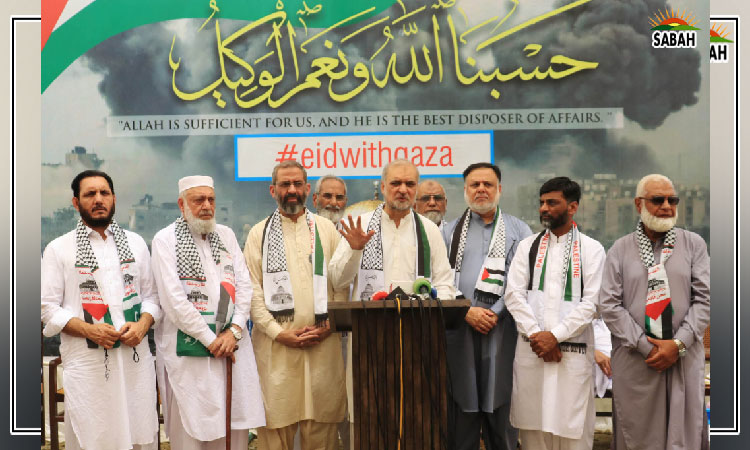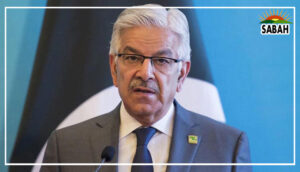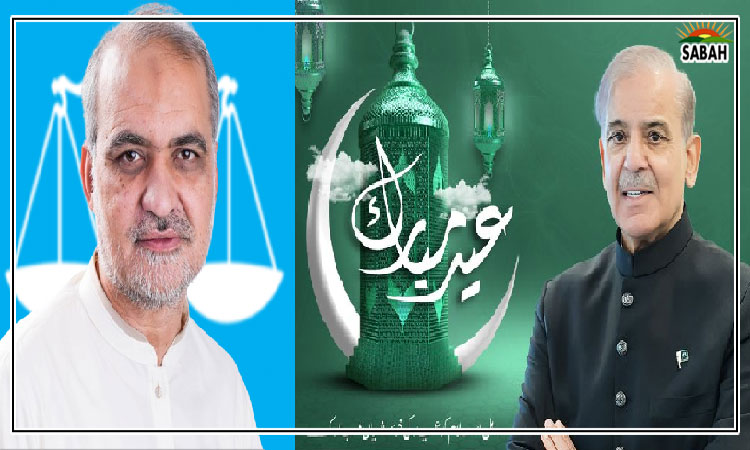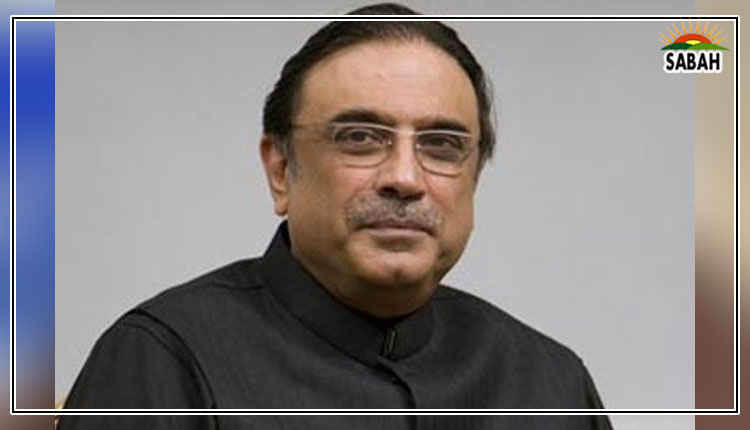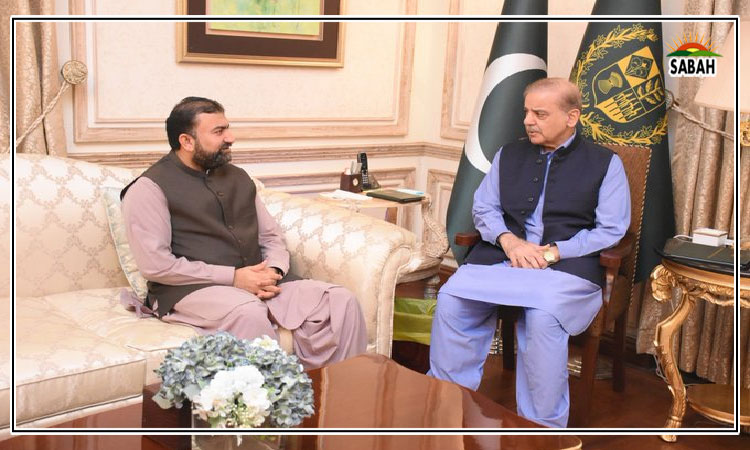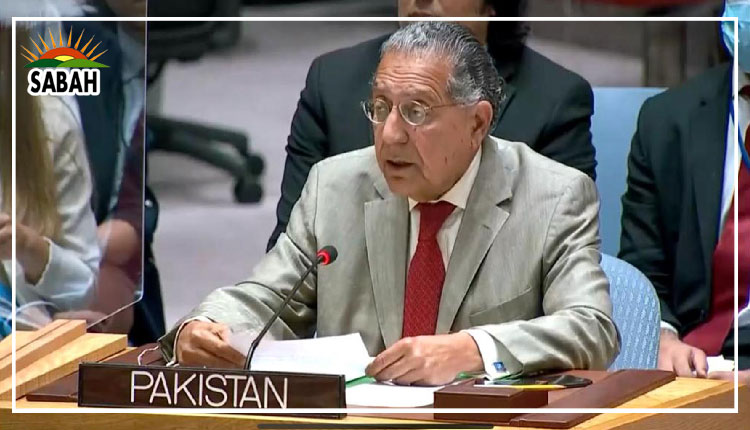At the UN, Pak’s primary aim is to secure the recognized right to self-determination of people of J&K: Munir Akram
NEW YORK, Oct 25 (SABAH): Pakistan’s Permanent Representative to the United Nation Ambassador Munir Akram has said that at the United Nations, Pakistan’s primary aim is to secure the recognized right to self-determination of the people of Jammu and Kashmir. We have welcomed the UN Secretary-General statement that the Jammu and Kashmir dispute should be resolved on the basis of “the UN Charter and the Security Council resolutions” which prescribe that the “final disposition” of the state will be determined through a free and fair plebiscite under UN auspices, he said. Munir Akram said that Pakistan will continue to press for the implementation of the Security Council Resolutions.
This was stated by Munir Akram on the occasion of the United Nations Day and the commemoration of the 77th Anniversary of the United Nations. Munir Akram said that he warmly congratulates the UN community on behalf of Pakistan.
Munir Akram said that the United Nations was established to maintain international peace and security and save succeeding generations from the scourge of war promote the economic and social development of all nations as well as to promote better living standards in larger freedoms through international economic cooperation.
He said that the UN Charter prescribed strict adherence to the principles of non-use of force, self-determination of people, respect for state sovereignty and territorial integrity, and non-interference in their internal affairs. Although the United Nations has been unable to achieve universal peace, a devastating Third World War has been averted – so far. Many regional conflicts were resolved or contained because most States have adhered to the UN Charter’s principles. Likewise, universal prosperity was not achieved although living standards improved for millions.
Munir Akram said that the series of recent external “shocks” to the world economy – the Covid-19 pandemic, the spike in the prices of commodities and goods, the growing frequency and intensity of the impacts of climate change and proliferating conflicts, have a disproportionately affected the poorest countries and poorest people, reversing the gains of decades of development and pushing another 100 million into extreme poverty. He said that the unequal impacts have been accompanied by a deficit in solidarity in vaccine distribution and financial support to the development countries – with $17 trillion injected by the richer economies and less than $100 billion in the developing world. The developing countries now face the triple food, fuel and finance crisis.
“We need emergency action to support the poorest and most vulnerable countries and structural changes to redress the systemic deficiencies that have perpetuated and exacerbated inequality among and within nations” he said. Munir Akram said that Pakistan has a long history of active participation and constructive leadership at the UN on development, security, human rights, and other issues. He said that Pakistan has served 8 times on the Security Council; it was elected 6 times as the President of the Economic and Social Council; and has been almost continuously on the Human Rights Council.
He said that Pakistan is one of major contributors of troops to UN peacekeeping – contributing 200,000 troops in 47 UN peacekeeping missions – with an outstanding record of performance.
He said that the UN membership furthermore recognizes Pakistan’s critical role in stabilizing Afghanistan by preventing a humanitarian crisis and economic collapse, promoting peace through reconciliation, and eliminating the threat of terrorism from Afghanistan’s territory. He said that Pakistan also plays a key role in promoting Islamic causes at the UN. Pakistan led the OIC countries in the adoption by consensus of the General Assembly resolution which declared March 15, as the International Day to Combat Islamophobia.
Munir Akram said that at present, Pakistan also chairs the Group of 77 and China (125 developing countries) and is leading the negotiations at the CoP27 Climate Conference and the SDG Summit next year. Pakistan is also actively promoting reforms to strengthen the principal organs of the UN – the General Assembly, the Security Council, the Economic and Social Council and the Human Rights Council. He said that in the present turbulent times, the UN’s Member States must place their faith in the principles and purposes of the UN Charter, which remain immutable and relevant to address the current global and regional challenges confronting the international community.


